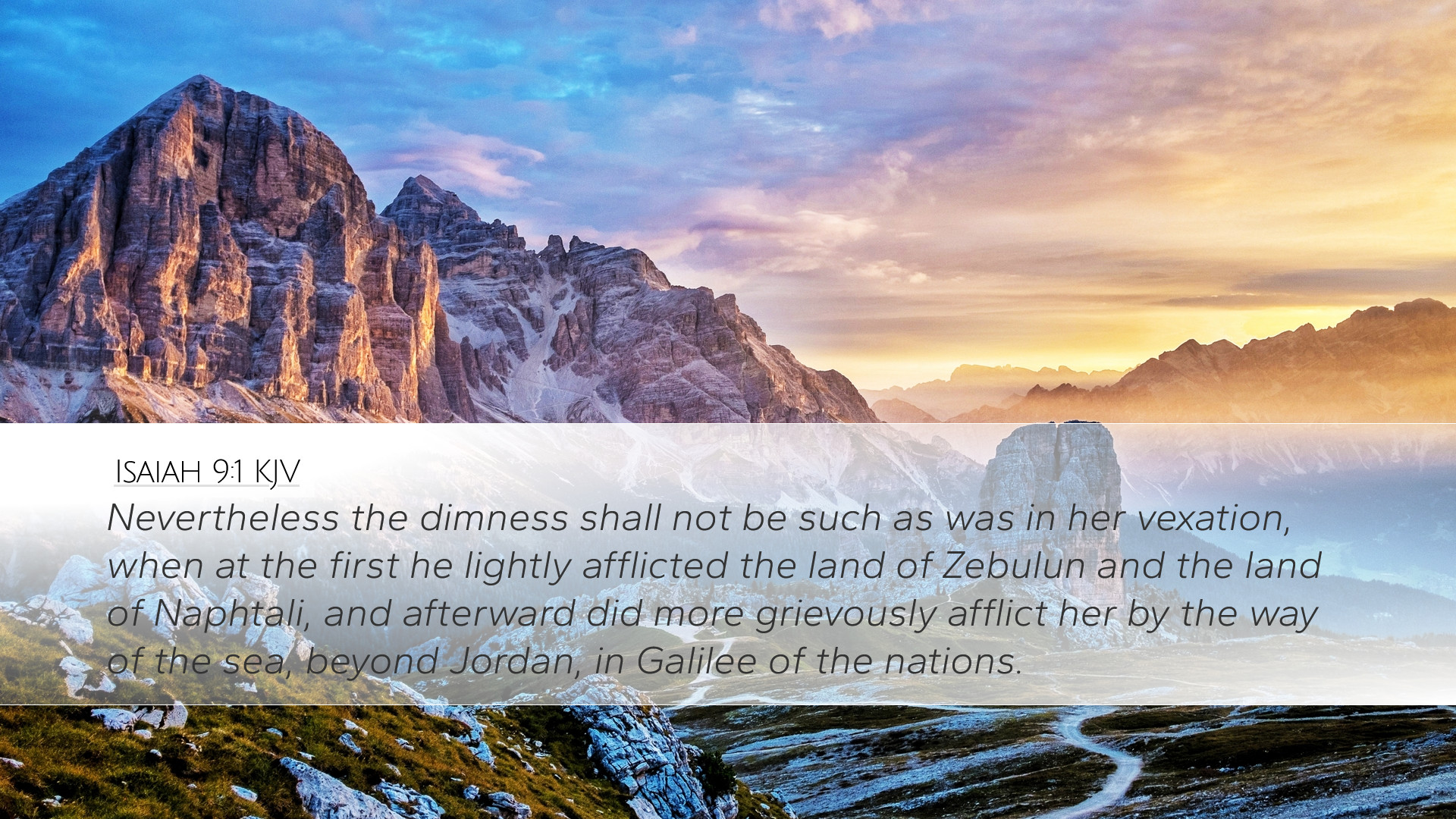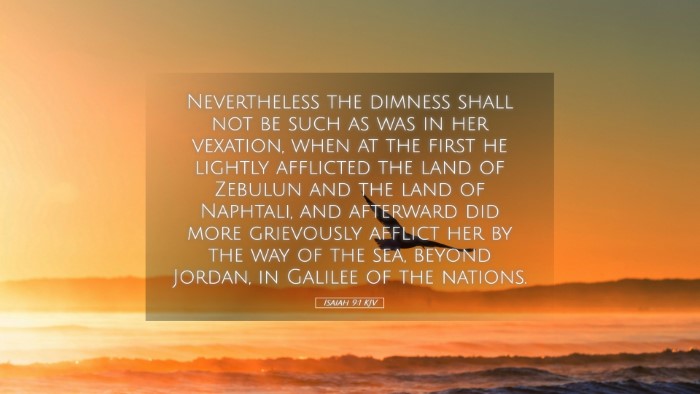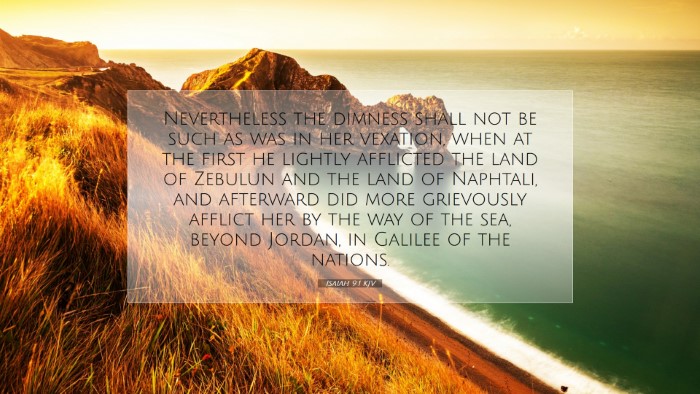Commentary on Isaiah 9:1
Verse Context: Isaiah 9:1 states, "But there will be no gloom for her who was in anguish. In the former time he brought into contempt the land of Zebulun and the land of Naphtali, but in the latter time he has made glorious the way of the sea, the land beyond the Jordan, Galilee of the nations." This passage is pivotal in the larger context of Isaiah's prophetic ministry, reflecting both judgment and hope.
Exegesis and Historical Background
The context of Isaiah 9:1 is rooted in the Assyrian invasion and the resulting devastation faced by Israel, particularly in the regions of Zebulun and Naphtali. This verse introduces a shift from mourning to promise, offering a vision of restoration and glory.
Commentary Insights
- Matthew Henry: Henry notes the transition from despair to hope in this verse. He emphasizes that the gloom which once enveloped these territories will be lifted by divine intervention. The "way of the sea" indicates a pathway of hope and glory leading toward the Messiah.
- Albert Barnes: Barnes interprets the mention of the "land of Zebulun and Naphtali" as a reference to the northern tribes of Israel that faced early devastation. He highlights how this region is significant in the New Testament, particularly in referencing Christ's ministry in Galilee, linking the prophetic promise to its fulfillment in Jesus.
- Adam Clarke: Clarke provides a nuanced understanding of the geographical references, noting their strategic importance during warfare. He elaborates that the promise of restoration extends beyond physical recovery to spiritual renewal, revealing God's enduring love for His people.
Theological Reflections
This verse encapsulates a profound theological message concerning judgment and grace. While it acknowledges the consequences of sin and rebellion, it simultaneously offers a breathtaking glimpse of redemption that is not solely for the Jews but for the "Galilee of the nations."
Restoration and Redemption
- Divine Judgment: The historical context of gloom signifies the severity of God's judgment upon His people due to their disobedience.
- The Promise of Hope: The promise of the "latter time" emphasizes God's faithfulness to bring restoration. The hope is materialized through the coming of the Messiah, who will ultimately transform gloom into glory.
Christological Interpretation
The New Testament identifies this verse as a prophecy foretelling the ministry of Jesus Christ. Matthew 4:13-16 quotes Isaiah 9:1-2, declaring the fulfillment of this prophecy in the regions where Jesus preached and performed miracles.
Significance of the Galilean Ministry
- Light in Darkness: Just as Isaiah speaks of a great light that shines in darkness, Jesus fulfills this by bringing spiritual illumination to those who dwell in the shadow of death.
- Inclusivity of the Gospel: The reference to "Galilee of the nations" underscores that the message of hope is extended to all people, not exclusively the Jews. This reflects God's universal plan of salvation.
Practical Applications
This passage serves as a rich source of encouragement for believers today. It reassures those in despair and challenges them to look toward God's promises amidst their struggles.
Application for Pastors and Theologians
- Hope in Preaching: This verse exemplifies the essence of the Gospel: proclaiming hope and redemption in place of despair.
- Understanding God's Character: The tension between judgment and mercy portrayed in this passage allows for a fuller understanding of God's character, providing a framework for discussing grace in the context of holiness.
- Engaging with Modern Context: Pastors are urged to draw parallels between the historical context and modern issues of desolation, offering communities a living hope through Christ.
Conclusion
Isaiah 9:1 serves as a beacon of hope, reflecting God's promise to His people. The blending of prophecy with its eventual New Testament fulfillment provides a comprehensive view of God's redemptive work. As students and theologians engage with this text, they are encouraged to recognize the profound implications of God's love that transcends judgment, bringing light into the darkest places of human experience.


